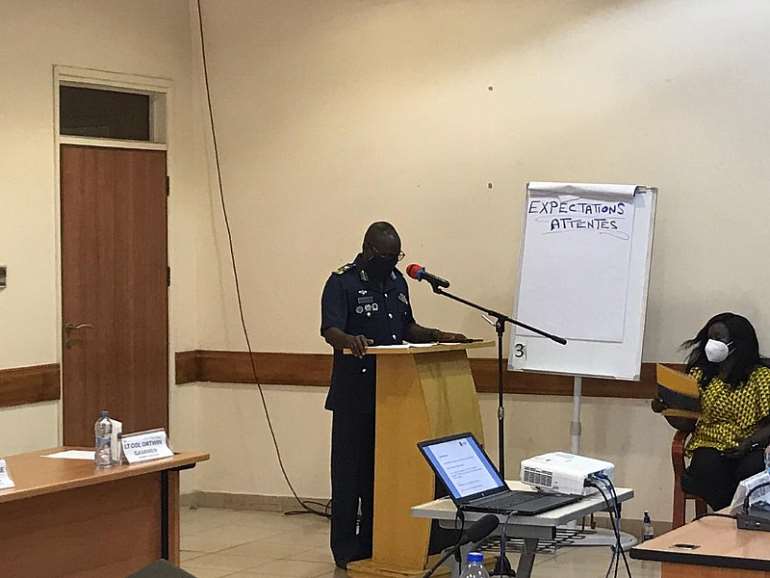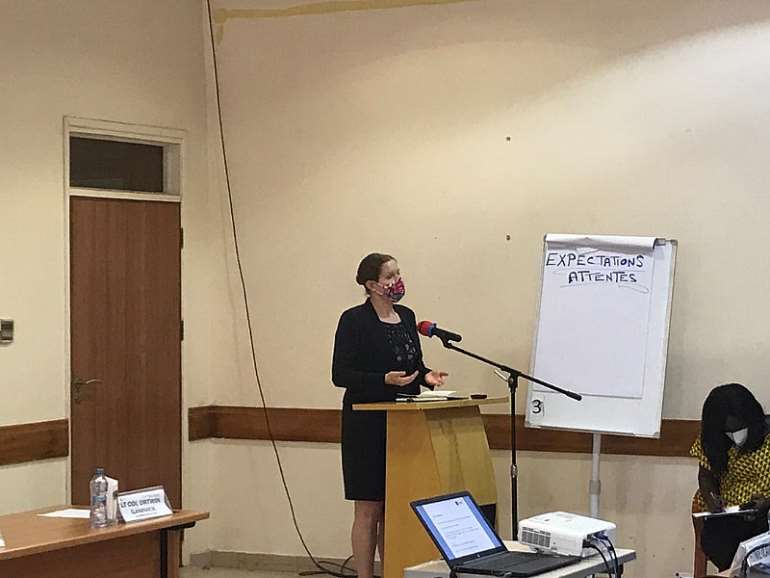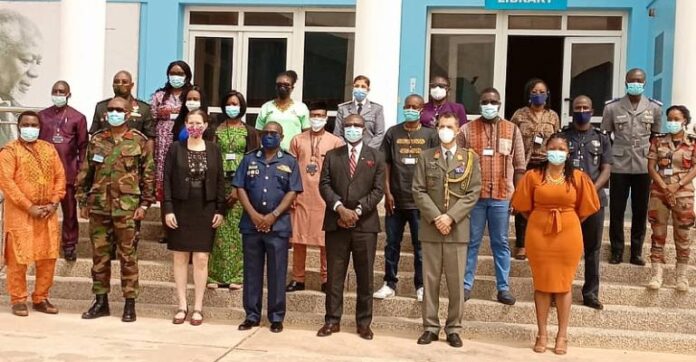The Kofi Annan International Peacekeeping Training Centre (KAIPTC) on Monday, February 22, 2021, commenced the 9th training session of its Humanitarian Assistance in West Africa Core Course with the official opening ceremony of the programme.
The course which was started in 2015 has since continued on a yearly basis by the KAIPTC and the Austrian Study Centre for Peace and Conflict Resolution (ASPR) with funding from the Austrian Development Agency (ADA) and supported by the Austrian Ministry of Defence.
The course seeks to contribute to several strategic objectives of the ECOWAS Humanitarian Policy and Action Plan through capacity building and, awareness creation.
It addresses the need for coordinated measures and mutual understanding between civilian, military, and police actors in humanitarian assistance and disaster relief.
Giving a welcome address at the opening ceremony of the 9th course at the KAIPTC today, Air Commodore George Arko-Dadzie who is the Deputy Commandant at the centre charged participants to take advantage of the course to find solutions to the increasing number of inter-connected and transnational challenges facing the ECOWAS region and the continent at large.
“To ensure that this course will help to foster human capacities, institutional interaction and civil-military cooperation, we are proud to introduce a team of international and regional facilitators, comprised of very experienced practitioners who will share the summary of their best practices, lessons learned, and experience gained in the field,” Air Commodore George Arko-Dadzie noted.

In the midst of the Coronavirus pandemic, the Deputy Commandant at the KAIPTC urged all participants as well as facilitators for the Humanitarian Assistance in West Africa Core Course to ensure all the safety protocols are strictly adhered to.
Delivering her address on behalf of the joint partners for the course, Mrs. Birgit Mayerhofer who is the Project Manager at the ASPR emphasized that in the midst of the Covid-19, the services of the humanitarians now more than ever are needed and hence the importance of the training.
“Humanitarian action is more necessary than ever. We have heard the concerning figures and now even with this pandemic going on…We can’t stop training people now. We need the humanitarians,” she noted.

Mrs. Mayerhofer while wishing participants of a good stay in the KAIPTC, also advocated for contact building as she indicated that it will be of great use in the future.
“While we will provide you with maybe new information, the key thing is that you connect. Please take this opportunity, create your network, it will really help in your everyday work,” she added.
In all, 19 participants from countries including Mali, Benin, Morocco, Nigeria, Senegal, Guinea, and Cote d’Ivoire are expected to benefit from the two weeks Humanitarian Assistance in West Africa Core Course.
Course content:
MODULE 1:
Introduction to Humanitarian Assistance
MODULE 2:
Emergency Mass Evacuation
MODULE 3:
Humanitarian Actors: mandates, modes of operation, response mechanisms
MODULE 4:
Coordination and Information Management between actors in the field
MODULE 5: Human Security, Displacement and Protection of Civilians
MODULE 6:
Humanitarian Operation in fragile and conflict context / Civil-Military Coordination Humanitarian CMCoord
MODULE 7:
Conflict Sensibility and community engagement during emergencies
MODULE 8: Public Information and Advocacy












































